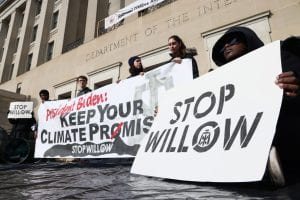
The Earth is constantly compared to women, as she is our provider of life, sustenance, and the place we call home. In previous posts, I’ve mentioned how deep this connection is and it makes sense the more you think about it. We only have one chance at keeping Mother Earth alive, so why do things that will continue to bring forth her destruction? How does the government come into play with this destruction?
In their article, Gender Equality and State Environmentalism, Norgaard and York dive into the theory that the more women that hold political titles, the more care there is for that environment. In their study, the make connections between the representation, and lack of, across numerous countries and determine if there is a positive outcome to having female representation in these positions.
They state that “women are more likely than men to express support for environmental protection” (3) and that “women are more concerned about the environment because they have been socialized to be family nurturers and caregivers” (3). Both of these statements make sense. So why is there a lack of representation? “If more women are prone to supporting the environmental movement than are men, increased representation of women in government might be expected to influence the behavior of nation-states with respect to the environment” (4).
Male centered government practices tend to be more destructive. By that I mean they disregard the smaller details of who/what they are impacting, so long as they meet their end goal; which usually is in some regard to money. Norgaard and York state that “the presence of sexism (as well as poverty and racism) enables social elites, corporations, and industry to maintain an appearance of progress and success while engaging in activities that are damaging not only to individual communities but to global ecological systems as well” (5). The first thing that came to mind when I read this is the recent discussion of The Willow Project.

The Willow Project was started by a company called ConocoPhillips with the intention of beginning new oil drilling in Alaska’s North Slope. They are set to begin drilling in 2027 and will last roughly 20 years. The company, as well as the American government, claim that this will help the state of Alaska and “put America back on the map, globally” (Harris on Colbert). And yes, that quote is from our first female Vice President; for the whole interview, click here. What they fail to tell us is how this will impact the environment, the communities, and the Earth overall.
This project will require “oiling drilling sites, compromise road access, disrupt pipelines, and a processing plant in order to aid in the production of various oils, gasses, and petroleum” (greenly.earth). Aside from the resources needed, the Arctic is already warming up at an alarming rate, sending numerous species of wildlife towards extinction. Indigenous communities are suffering from the loss of land, food, and their natural way of life. AND the amount of greenhouse gasses this project would produce will make it impossible for the US to ‘continue’ to move towards cleaner emission reductions and fight against climate change.
There is major controversy around this project as the Biden Administration just approved it but where were the voices of environmental activists? There were many who protests outside The White House and over 3 million that signed a change.org petition against this project. Our voices have been taken away from us.

The world isn’t all that bad as Sweden is working hard for a better future. The city of Stockholm has become one of the biggest hubs for environmental research and has also put their words to action. Sweden is working towards a more sustainable and environmentally friendly future through: renovating industrial areas into low-energy housing, electric transport and bikes, sustainable housing and urban parks, and numerous other accomplishments. More can be found on their site, here.
Through Norgaard and York’s research, they found that Sweden is one of the top ranking countries with women in parliament and with better care for the environment. Their “results are also consistent with theoretical claims by feminist theorists that sexism and environmental degradation are interconnected processes” (9).
The European Institute for Gender Equality discusses how women are so heavily underrepresented in the decision-making process in regard to the environment and climate change. One shocking statistic states that “26.8% of government ministers responsible for policies on the environment and climate change are women, while 73.2% are men”. They continue to state that this is the highest number of women in these positions that we’ve ever had, although female representation is still severely lacking.
Their site continues with other statistics and charts for more focused topics such as: farming, healthcare, education and international climate change discussions. I’m thankful that women are included in some of these conversations but our voices are still being overpowered by these male-centric societies. Norgaard and York conclude their article reaffirming these truths; “societies with greater overall equality might also be expected to be more environmentally friendly. Such an outcome is predicted by ecofeminist theory based on the logic of domination” (13).
Tell me your thoughts in the comments. Should the rest of the world adapt the Green Policies Sweden is working towards? How do you think the Willow Project with impact the rest of the world? Why are women still so underrepresented if the world claims to be so equal?
https://greenly.earth/en-gb/blog/ecology-news/why-is-the-conocophillips-willow-project-controversial-in-the-us

Lizzy,
I had some prior knowledge around the environmental work Sweden has been doing so reading your post was really cool. I was really close to choosing them as an example for this week because I think they are more progressive when it comes to policy making. However, to your point, the gender disparities in European countries were very visible when I was searching the web for resources this week and women’s representation in policy making and elected offices is at an all time high. Upon further investigation in European countries like Switzerland, I found that women recently gained the right to vote in 1971.
I’ll try to answer the question you posed. You asked, “Why are women still so underrepresented if the world claims to be so equal?”. I think women are still so underrepresented in policy making and state environmentals because systems of oppression and dominance like class and patriarchy are always working. From the reading this week Norgaard and York say this in regard to women’s progression, “this inability of women to pursue their own agendas further minimizes any impact of gender differences in values or risk perceptions on environmental decision making” (page 517). Overall gender equality and progressive environmental progress do appear to have a give and take dynamic to me , as the scholars theorize about women’s involvement government the will move closer to healthier relationship to their state environmental policies.